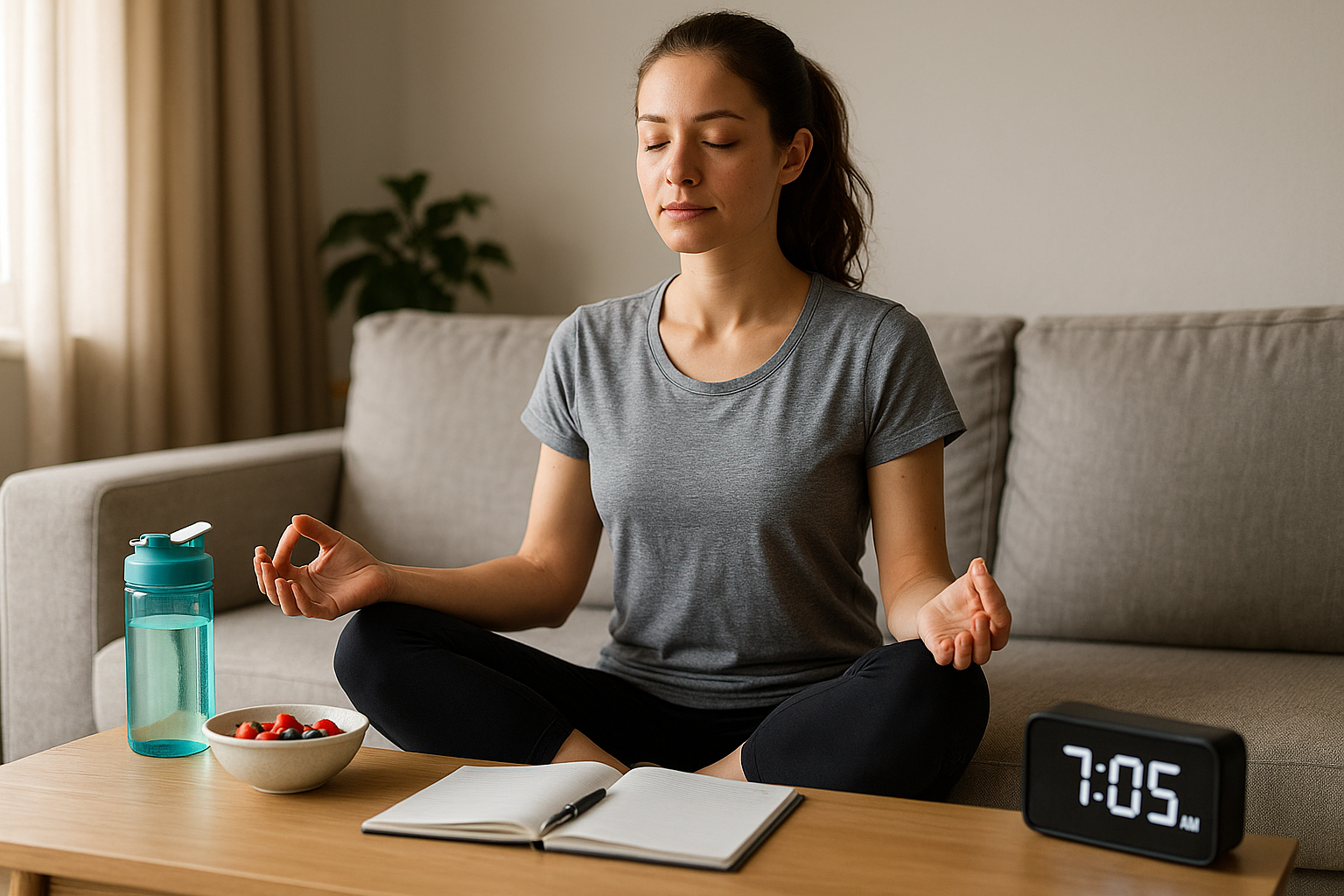In today’s fast-paced world, maintaining a healthy lifestyle can seem almost impossible, especially when time is limited. Between work, family, social commitments, and everyday responsibilities, self-care and wellness are often the first things to be sacrificed. But the truth is, creating a healthy routine doesn’t require hours of free time—it just takes smart planning, commitment, and a few strategic habits.
Below, you’ll discover practical, time-efficient tips to help you develop a sustainable healthy routine, even with a busy schedule.
Start With Realistic Goals
One of the biggest mistakes people make when starting a healthy routine is setting goals that are too ambitious. If you try to overhaul your entire life overnight, you’re likely to burn out quickly. Instead, start small:
- Swap out one unhealthy snack a day for a healthier option.
- Add 10 minutes of movement into your morning or evening.
- Drink one extra glass of water per day.
These micro-changes may seem insignificant, but they add up. More importantly, they create momentum without overwhelming your schedule.
Prioritize Sleep — It’s Non-Negotiable
No matter how packed your day is, getting enough sleep should be a top priority. Lack of sleep affects everything: mood, energy, decision-making, and even weight. Try the following tips:
- Go to bed and wake up at the same time every day (yes, even weekends).
- Avoid screens at least 30 minutes before bedtime.
- Keep your bedroom cool, dark, and quiet.
Even if you can’t get a full 8 hours every night, improving the quality of your sleep can make a huge difference.
Make Movement Part of Your Routine
You don’t need a gym membership or a full hour to get active. Exercise can be broken into smaller, manageable chunks throughout your day:
- Do a 7-minute workout during your lunch break.
- Take the stairs instead of the elevator.
- Walk or bike to nearby locations when possible.
- Stretch while watching TV or listening to a podcast.
Remember, consistency matters more than duration. Even 15–20 minutes of movement daily can improve your overall health and mood.
Plan Your Meals (Even Just a Little)
Eating healthy doesn’t mean preparing gourmet meals every day. With some simple planning, you can make better food choices without spending hours in the kitchen:
- Cook in batches on weekends and store meals in containers.
- Keep healthy snacks on hand like fruits, nuts, and yogurt.
- Use a grocery list to avoid impulse purchases and save time.
Even a few planned meals per week can reduce stress, save money, and keep your diet balanced.
Stay Hydrated
Many people mistake thirst for hunger or fatigue. Staying hydrated boosts your energy, concentration, and even your metabolism. If you’re short on time, try these tricks:
- Carry a reusable water bottle with you.
- Set reminders to drink water during the day.
- Flavor your water with lemon, cucumber, or mint for variety.
Aim for at least 6 to 8 glasses a day, and more if you’re physically active.
Take 5-Minute Mental Breaks
Mental wellness is just as important as physical health. Taking even a few minutes to reset your mind can improve focus, reduce stress, and improve your productivity. Here are some ideas:
- Practice deep breathing or a short guided meditation.
- Step outside for fresh air and natural light.
- Write in a gratitude journal.
You don’t need a full hour of yoga—just a few intentional minutes can recharge your brain.
Stack Habits for Better Efficiency
Habit stacking is a powerful technique that involves linking a new habit to an existing one. This helps your brain automate the new behavior. For example:
- Do squats while brushing your teeth.
- Stretch while waiting for your coffee to brew.
- Review your to-do list while having breakfast.
By pairing tasks, you save time while building healthy habits.
Use Technology to Your Advantage
Smartphones aren’t just for scrolling. Use apps to support your routine:
- Set reminders for water, movement, and rest.
- Use meal planning apps or grocery delivery services.
- Track your sleep or fitness progress.
Technology, when used mindfully, can help you stay accountable and efficient.
Create a “Non-Negotiables” List
Life gets busy, and some days won’t go as planned. Instead of aiming for perfection, identify 2–3 daily non-negotiables that you always commit to, no matter what:
- Drinking a certain amount of water.
- Moving your body for at least 10 minutes.
- Getting at least 6 hours of sleep.
These small anchors keep your routine intact even on the busiest days.
Say No (And Feel Good About It)
One of the most powerful tools for time management and wellness is learning to say no. Overcommitting leads to burnout and neglect of personal well-being. Respect your time by:
- Declining tasks that don’t align with your priorities.
- Delegating when possible.
- Setting boundaries with work, social life, and technology.
Remember: Saying “no” to others is often saying “yes” to yourself.
Reevaluate Regularly
Your routine should evolve as your life does. Every month or two, take time to reflect:
- What’s working well?
- What feels forced or unsustainable?
- What new habits do you want to try?
Adjusting your routine is not a failure—it’s part of the process. Flexibility makes your habits more realistic and long-lasting.
Final Thoughts: Progress Over Perfection
Building a healthy routine isn’t about being perfect—it’s about being consistent. Even with a packed schedule, you can prioritize your well-being with small, smart steps. Focus on progress, not perfection, and celebrate every win, no matter how small.
You don’t need more time—you just need intention.
